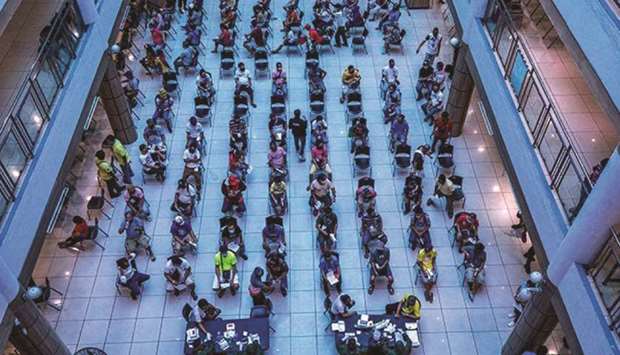The Philippines aims to test 1.5-2% of its almost 110mn population under its expanded testing for the coronavirus disease 2019 (Covid-19), Malacanang said.
Palace spokesman Harry Roque Jr said the Philippines was working on a “global benchmark,” which is set to test 1-2% of the entire population, or higher than that in the epicentre.
“Perhaps we used the term ‘mass testing’ incorrectly.
We should call it ‘expanded targeted testing.’ There’s no country that tests all of its citizens,” Roque said.
“The key in testing is to work on benchmarks or target 1-2% of the population of the entire country or in the case of an epicentre, even higher, up to 10%. That’s what we’re aiming for in Metro Manila,” he added.
The government drew flak online after Roque admitted that there was no programme for mass testing yet because resources were limited.
But he clarified that the government’s expanded testing initiative would be aided by the private sector.
“From the very beginning, it has really been a public-private partnership as far as testing is concerned,” Roque said.
“Businesses know that the economy cannot reopen without a significant number of our population being subjected to testing,” he added. As of May 15, Roque said the government had conducted 11,127 coronavirus tests daily from the usual 5,000 tests in earlier May.
He said those who needed to undergo testing were citizens with symptoms of the disease, those coming from abroad, all close contacts of said persons, and those who tested positive in rapid antibody tests.
The government has so far distributed 275,000 test kits to areas that do not yet have PCR — polymerase chain reaction — laboratories.
“We plan to be able to reach the capacity of doing 30,000 tests a day (by the end of the month),” he said.
So far, the Philippines has tested 207,823 individuals — a measly 0.19% of the country’s total population.

Tricycle drivers observe physical distancing during the local government of Mandaluyong City Covid-19 ‘rapid’ testing for 7,000 drivers.
